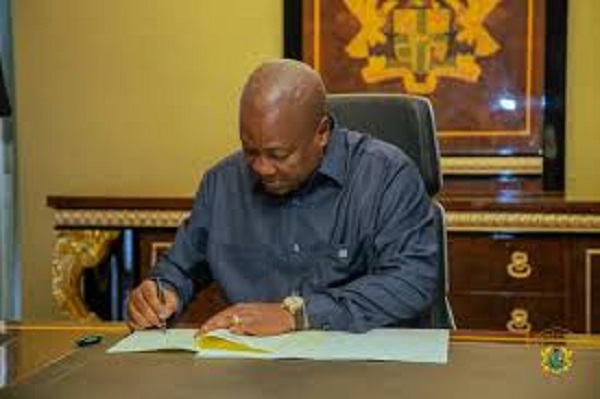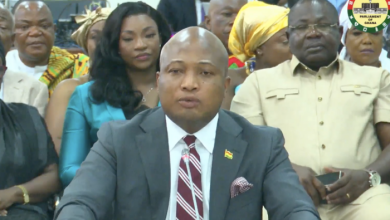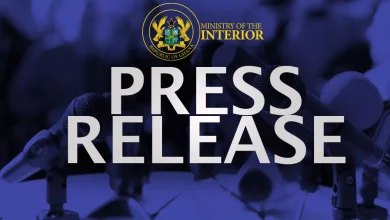President Mahama assents to GH₵1 fuel levy bill

President John Dramani Mahama has officially signed into law the Energy Sector Levy (Amendment) Bill, 2025, cementing a controversial but, what the government describes as a crucial financial measure.
The new law, assented to in Accra today, Thursday, June 5, 2025, introduces an additional GH¢1 levy on each litre of petroleum products, a move projected to inject an extra GH¢5.7 billion annually into Ghana’s struggling energy sector.
This legislative action comes as the nation grapples with a formidable energy sector debt that reached US$3.1 billion by March 2025.
The government’s core objective for this levy is to mitigate these accumulated debts and secure a consistent power supply, thereby averting future “dumsor” (power outages).
Just yesterday, June 4, President Mahama robustly defended the increment, categorising it as a “necessary and justifiable step to stabilise Ghana’s energy sector”.
He acknowledged the public’s concerns regarding new taxes but stressed the long-term benefits for the nation’s energy future.
“This decision, though difficult, is necessary and justifiable,” President Mahama stated when receiving the final report from the National Economic Dialogue Planning Committee. He provided a firm assurance that the new revenue generated from the levy would be “strictly ring-fenced” for specific uses within the energy sector.
“This revenue will be strictly ring-fenced to pay down legacy debts, finance ongoing fuel purchases, and avert the risk of recurring power shortages,” President Mahama explained, highlighting the dual aim of settling historical liabilities and ensuring the continuous procurement of fuel for thermal power generation. The energy sector’s existing debt includes substantial arrears owed to Independent Power Producers (IPPs), State-Owned Enterprises (SOEs), and fuel suppliers. Records indicate that a minimum of US$3.7 billion is required to fully clear these debts, with an additional US$1.2 billion specifically needed for fuel procurement throughout 2025.
The assent to this bill follows its passage by Parliament on Tuesday, June 3, despite a walkout by the Minority Caucus. The Minority had vehemently opposed the levy, arguing it would burden Ghanaians unnecessarily. However, the Majority side, led by Mahama Ayariga, maintained that the strong performance of the Ghana Cedi would absorb the immediate impact, preventing an ex-pump price hike for consumers.
With the presidential assent, the GH¢1 fuel levy is now fully integrated into Ghana’s financial framework, marking a critical intervention in the government’s strategy to address the nation’s persistent energy challenges.




